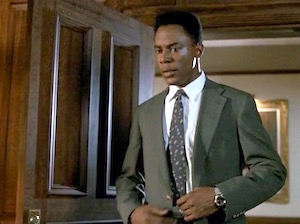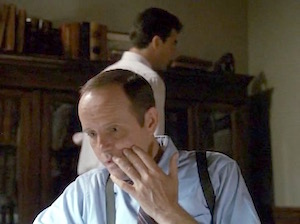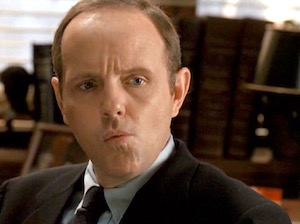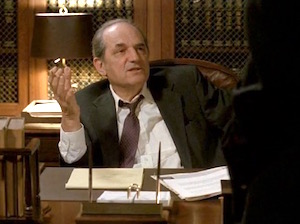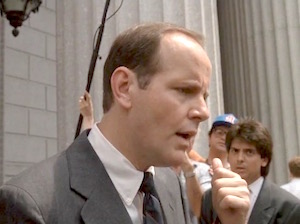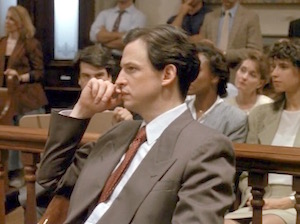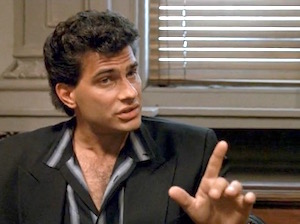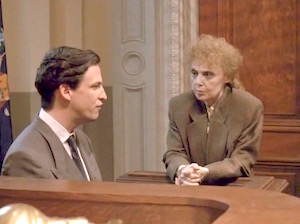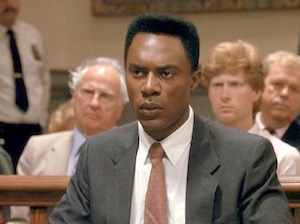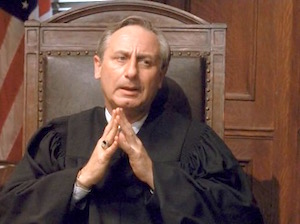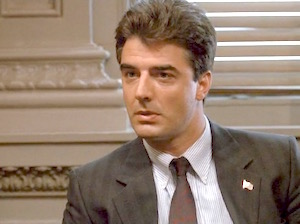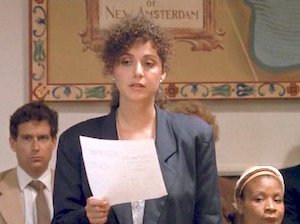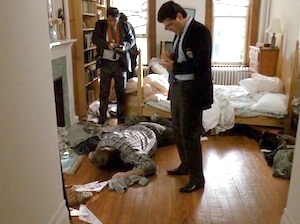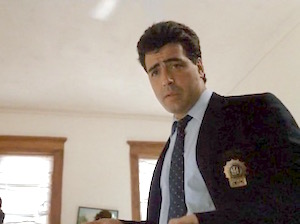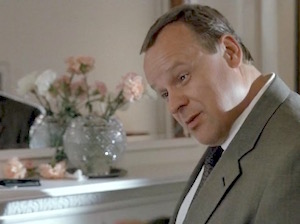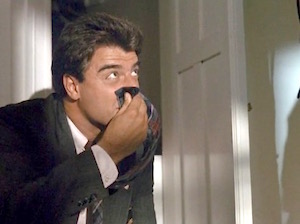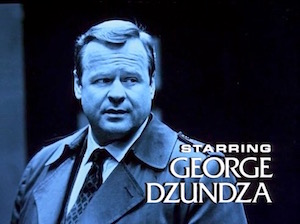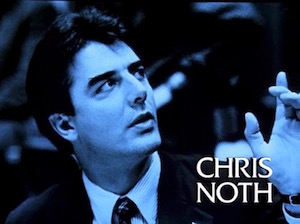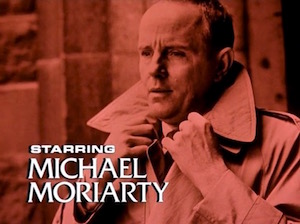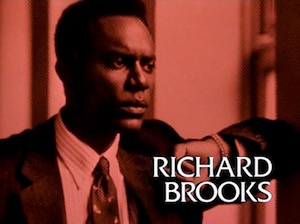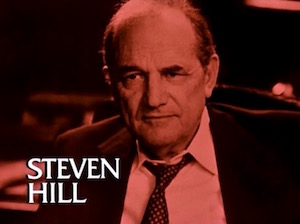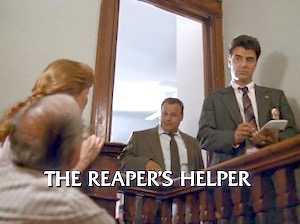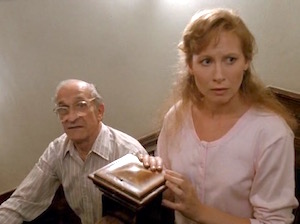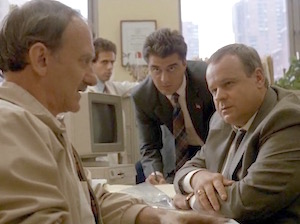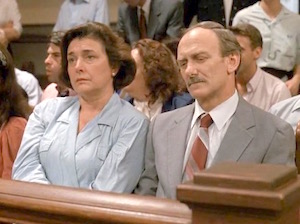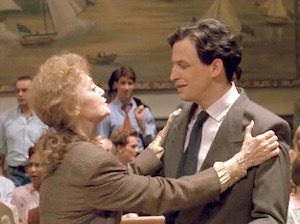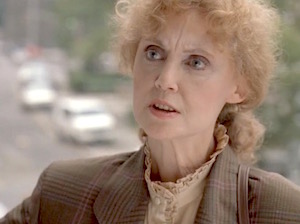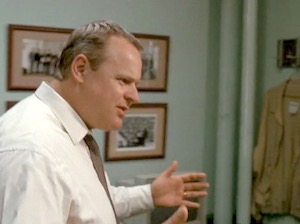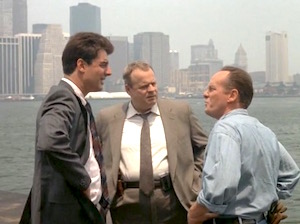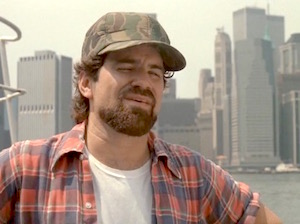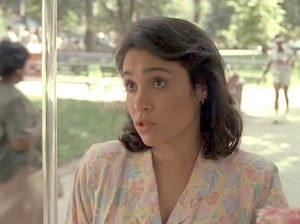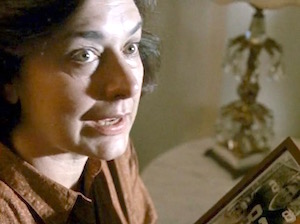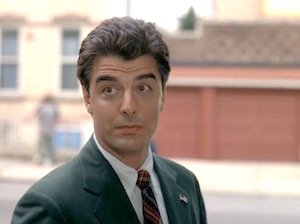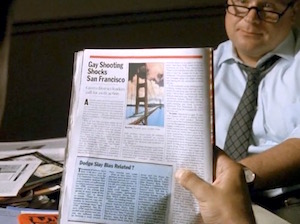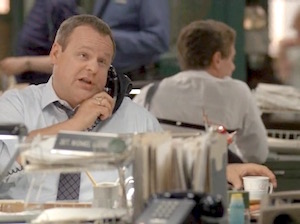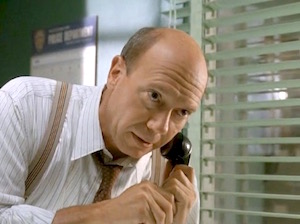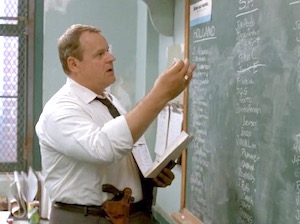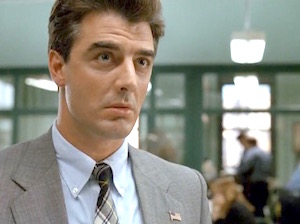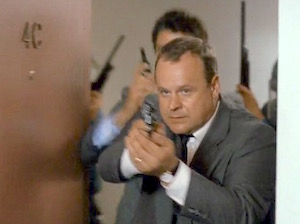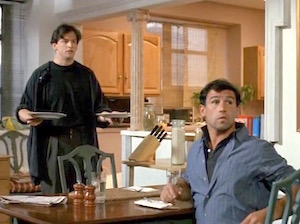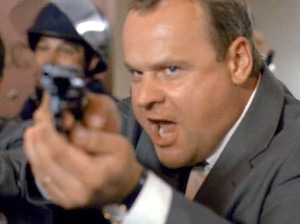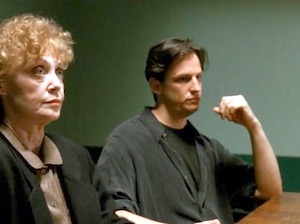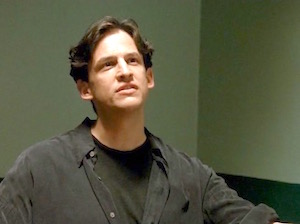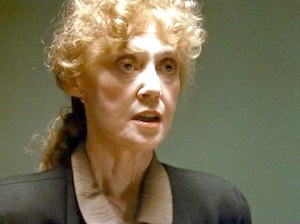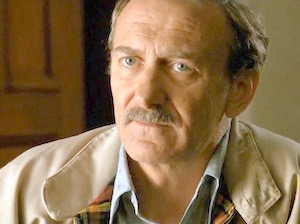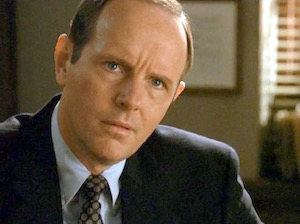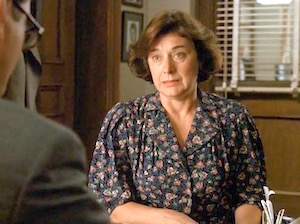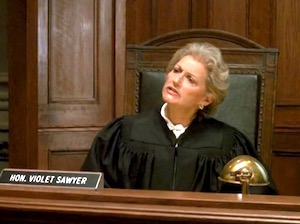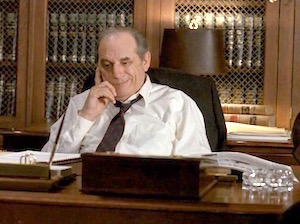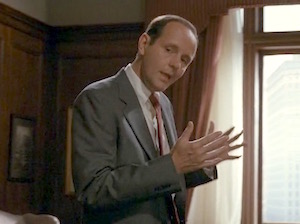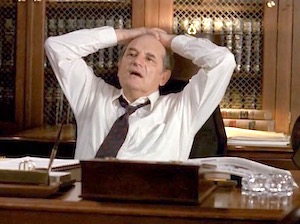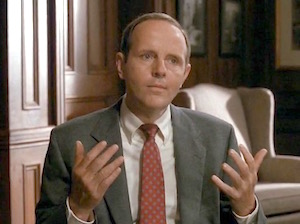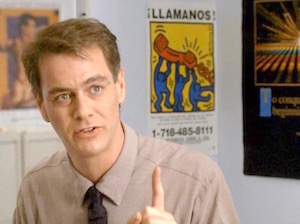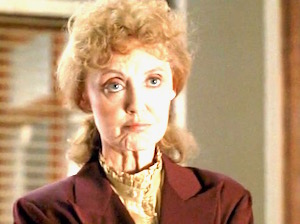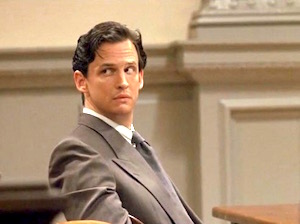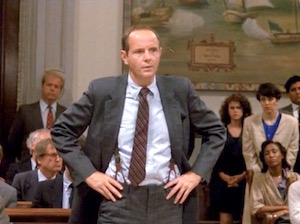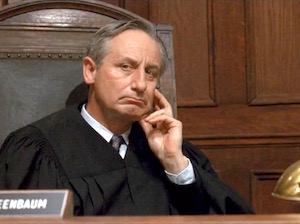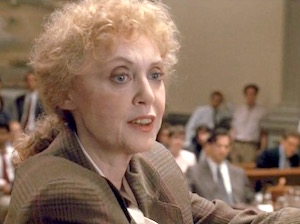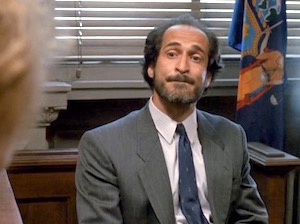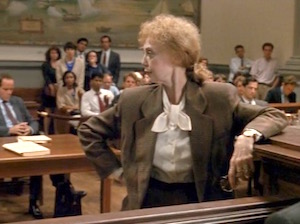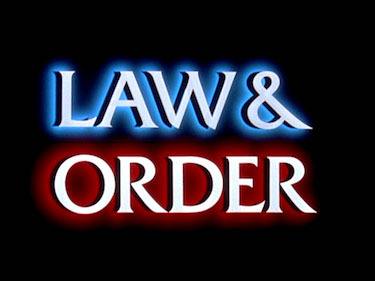
Law & Order
Law & Order was a police procedural and legal drama TV series created by Dick Wolf and part of the Law & Order franchise (which includes Law & Order: Criminal Intent, and Law & Order: Special Victims Unit), that originally aired on NBC. Law & Order premiered in September of 1990, and wrapped up its 20th and final season on in May of 2010. By the time it was finished, Law & Order had become the longest-running crime drama on American primetime television. Its record of 20 seasons tied it with Gunsmoke (1955-1975) for the longest-running live-action scripted American prime-time series.
In 1988, Dick Wolf had developed the concept of a TV series that would depict, in a relatively optimistic way, the inner workings of the American criminal justice system. He initially considered calling it Night & Day, but soon hit on the title that would become culturally emblematic: Law & Order. The first half of each episode would follow two detectives (senior and junior level) and their commanding officer as they investigated a violent crime. The episode's second half followed the District Attorney's Office and the courts as two prosecutors, with advice from the District Attorney, worked to convict the accused. Through this, Law & Order investigated larger issues of the day by focusing on stories that were based on real cases making headlines.
See the Law & Order Show Intro
Wolf took his brainstorm to Universal Television President Kerry McCluggage, who saw its similarities to an obscure 1963 series called Arrest and Trial, which had survived just one season. The two watched the pilot of that series, in which a police officer (Ben Gazzara) arrested a man for armed robbery in the first half, and the defense attorney, played by Chuck Connors, proves that the perpetrator is the wrong guy and should be let off in the second half; this was the show's formula, week after week. Wolf decided that while his detectives could sometimes be fallible, he wanted a different approach; to go from a police procedural to the prosecutorial phase, stressing realism the whole time. The prosecutors, moreover, would be the heroes — the opposite of the standard formula in lawyer dramas.
At first, Fox ordered 13 episodes based on the concept alone, but then-network head Barry Diller nixed the deal. Although he loved the concept, he didn't think it was a “Fox show”. Undaunted, Wolf took his wares to CBS, and they ordered a pilot, “Everybody's Favorite Bagman”, written by Wolf and focused on corrupt city officials with mob ties. Despite liking the pilot, CBS turned it down; there were no breakout stars. In the summer of 1989, NBC's top executives screened the pilot and liked it, though they had concerns that the show's intensity could not be maintained week after week. A year later these concerns were allayed; they had enough confidence that Law & Order appealed to a wide enough audience that they ordered the series for a full season.
The show's cast changed greatly over the years. Some of the longest-running main characters included Steven Hill as DA Adam Schiff (seasons 1-10), Jerry Orbach as Detective Lennie Briscoe (seasons 3-14), S. Epatha Merkerson as Lieutenant Anita Van Buren (seasons 4-20) and Sam Waterston as Executive Assistant DA (later full-fledged District Attorney) Jack McCoy (seasons 5-20).
Law & Order won or was nominated for many Emmys in its long prime-time run, but as successful as it was, in the end it was cut down by the corporate ratings axe. When NBC announced its cancellation in May of 2010, producer/creator Dick Wolf announced he'd be trying to find it a new home, and that he was also actively considering a “last resort” plan for a two-hour TV film that would run on NBC. Soon afterwards he admitted that his efforts had failed, and that the series had reached the point where it had “moved to the history books”.
But in February 2015 rumors surfaced that NBC wanted to bring the show back for 10 new episodes. In May 2015, Sam Waterston said in a Hollywood Reporter interview that he supported and would join a revival of Law & Order: “You're darn right. Sure, I'd love it. Got to break the record.” Dick Wolf said he wanted to use an L&O redux to do a ‘ripped from the headlines’ story-line on the murder trial of Robert Durst. “I'd bring back Law & Order,” said Wolf. “Everybody who knows me knows it's something I want to do. My only regret looking backward is all the great stories that we haven't been able to do for the past five years.”
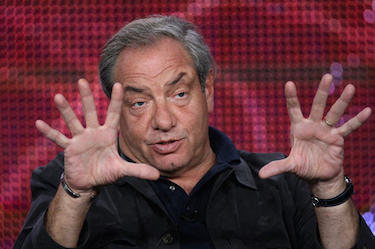
Law & Order was shot in New York City and became known for its use of local color. Mayors Rudy Giuliani and Michael Bloomberg, attorney William Kunstler, and Bronx Congressman José Serrano all appeared as themselves on episodes of the show. Local personalities had recurring cameos as fictional characters. Donna Hanover and Fran Lebowitz appeared periodically as judges, for instance.
Music and “The Clang”
The music for Law & Order was written by veteran composer Mike Post, who crafted it in a deliberately minimalist way to match the terse and unadorned story-telling style of the series. Post's theme song featured an arrangement of electric piano, guitar, and clarinet. And in a striking innovation, scene changes were accompanied by a highly-distinctive aural tone created by Post. The tone is referred to by Post himself as “The Clang,” but it has many different names. Entertainment Weekly critic Ken Tucker called it the “ominous chung CHUNG”, actor Dann Florek referred to it as the “doink doink”, and Richard Belzer, most pungently, labeled it “the Dick Wolf Cash Register Sound.” The tone's function is to move the viewer from scene to scene in a startling and immediate way. “The Clang” is a remarkable melange — an ingenious blend of almost a dozen different sounds, including a judge's gavel, the slam of a jail door, even the sound of five hundred Japanese monks stepping across a hardwood floor. The Clang is so much a part of Law & Order in the public mind that it was carried over to other shows in the franchise.
|
Law & Order Theme excerpt
|
The Law and Order "Clang"
|

George Dzundza and Chris Noth were cast as detectives (Sergeant) Max Greevey and Mike Logan. The producers felt that Dzundza perfectly evoked a senior police officer — he was someone they imagined they could join for a police car ride-along. Noth and actor Michael Madsen were candidates for the Logan role. Madsen was initially favored, but in a final reading he struck the producers as too mannered and repetitive, and Noth got the part. Dann Florek rounded out the police cast as Captain Donald Cragen.
Michael Moriarty was Dick Wolf's choice to play Executive Assistant DA Ben Stone on the prosecutorial side of things. The network liked James Naughton, but Wolf prevailed, and Moriarty won the role. Richard Brooks and Eriq La Salle were considered for the part of Paul Robinette, the ADA. The network wanted La Salle, but, again, Wolf won out, and Brooks was picked. Roy Thinnes was chosen to play District Attorney Alfred Wentworth.
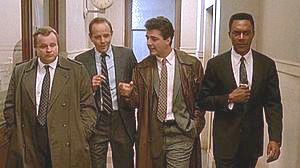
George Dzundza, Michael Moriarty, Chris Noth and Richard Brooks.
Dzundza was not happy when he realized Law & Order would be more of an ensemble effort rather than a starring vehicle for him. Though the cast liked and appreciated his performances, they felt increasingly uncomfortable around him. Dzundza's long commute to New York City from his home in Los Angeles was also a major source of stress. Dzundza quit after just one season, and his character written off as being killed in the line of duty. He was replaced by Paul Sorvino as Sergeant Phil Cerreta, who producers considered more even tempered than either Max Greevey or Mike Logan. Sorvino was initially excited about the role, but his enthusiasm faded with his exposure to the series' exhausting schedule. He left in the middle of season three, citing the work schedule, a need to broaden his horizons, and a desire to preserve his vocal cords for singing opera (the show's writers disposed of Sergent Cerreta by having him shot in the line of duty and transferred to a desk job in another precinct).
Carolyn McCormick was introduced on a recurring basis during Season 2 as Dr. Elizabeth Olivet, a police psychologist utilized by the precinct as needed. NBC had been pressuring producers to add female characters to the male-dominated cast. Despite attempts by producers to write her into as many episodes as possible, the show's focus on police and prosecutors made this difficult, and by Season 5 she was gone as a semi-regular, though her character remained technically attached to the show and would appear sporadically in the coming years.
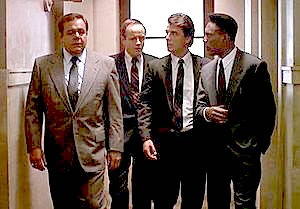
Paul Sorvino, Moriarty, Noth and Brooks (initially also the cast of Season 3, until Sorvino departed mid-way through the season, to be replaced by Jerry Orbach).
At first, Jerry Orbach wasn't sure he wanted to endure the rigors of series stardom in an hour-long drama, after seeing what it did to his friend David Janssen on The Fugitive, but, paradoxically, he changed his mind about it as he got older. Orbach was introduced to Law & Order by his wife Elaine, who was a fan of the show. This led to him guest-starring as a defense attorney in the Season 2 episode “The Wages of Love”. Wolf was so impressed with Orbach that he cast him as the new senior detective of the series after Sorvino's departure, giving him the role of Detective Lennie Briscoe. Orbach's characterization of the world-weary, wisecracking detective was based on a similar NYPD character he'd portrayed in the 1981 film Prince of the City, a favorite of Wolf's.
As Season 3 drew to a close, NBC executives still worried that the show didn't have enough female characters. Network president Warren Littlefield ordered that women be added to the cast or the show would face cancellation. Since there were only six main characters, Wolf knew someone had to be fired. He chose Florek and Brooks, and would later recall that they were the hardest two phone calls he had ever had to make. To replace Florek, S. Epatha Merkerson was cast as new squad leader Lieutenant Anita Van Buren (Merkerson had previously guest starred as a mother of a gunshot victim in the Season 1 episode “Mushrooms”). To replace Brooks, Jill Hennessy was cast as Assistant District Attorney Claire Kincaid. Though no initial explanation was given on the show for the departures of Florek and Brooks' characters, they would both later return in guest appearances (with Captain Cragan now working for the Internal Affairs Bureau and ADA Robinette having become a defense attorney). Florek also returned to direct a few episodes.
Meanwhile, Moriarty's behavior both on and off the set became problematic for Wolf. After a public statement in which Moriarty called Attorney General Janet Reno a “psychopathic Nazi” for her efforts to censor television violence, Moriarty engaged in a verbal confrontation with Reno at a dinner in Washington, D.C. Wolf asked Moriarty to tone down his comments, and Moriarty responded by quitting the show the next week. The final storyline for Ben Stone involved him resigning over guilt after a woman he compelled to testify against a Russian mobster was murdered by his cohorts. To replace Moriarty, Sam Waterston was Wolf's first choice for the role of Executive Assistant District Attorney Jack McCoy. Waterston's character was markedly different from Moriarty's in that Jack McCoy was conceived as more emotionally stable and having more sex appeal.
Wolf fired Noth when his contract expired at the end of Season 5, because he felt that Lennie Briscoe and Mike Logan had become too similar to each other and the writers were having difficulty in writing their dialogue together. Furthermore, Noth had been disgruntled with the show since the firings of Florek and Brooks, and remained embittered against Wolf, who he felt was not a friend to his actors. The final story line for Detective Logan involved him being banished to work on Staten Island in a domestic violence crimes unit as punishment for punching a city council member who had orchestrated the murder of a gay colleague and had managed to get acquitted of the charges. Noth was replaced by Benjamin Bratt as Detective Rey Curtis, who was hired in an attempt to find an actor even sexier than Noth to join the cast.
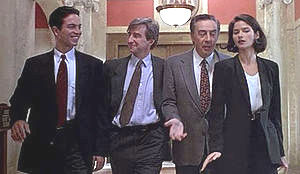
Benjamin Bratt, Sam Waterston, Jerry Orbach and Jill Hennessy (The first cast not to feature any of the originals, except for Steven Hill).
Hennessy chose not to renew her three-year contract at the end of Season 6 to pursue other projects, and Claire Kincaid was written off as being killed in a drunk driving accident. She was replaced by Carey Lowell as Assistant District Attorney Jamie Ross. Lowell remained with the show until the end of Season 8, when she left to spend more time with her daughter (Jamie Ross was written off as leaving the D.A.'s office for similar reasons). Lowell (who later returned for a couple guest appearances) was replaced by Angie Harmon as Assistant District Attorney Abbie Carmichael, who was conceived as being much louder and outspoken than any of her predecessors. Harmon auditioned with 85 other women, including Vanessa Williams, for the role, and was picked after Wolf heard her Texas accent.
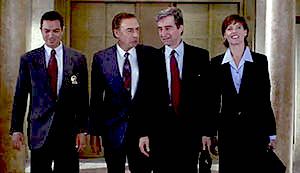
Bratt, Orbach, Waterston and Carey Lowell (The first line-up to persist more than one full season).
Bratt left the series at the end of Season 9, stating it was an amicable departure and he expected to eventually return for guest appearances (he ultimately returned for the Season 20 episode “Fed”). Detective Curtis was written off as leaving the force in order to take care of his wife, who was suffering from multiple sclerosis, in her final days. He was replaced by Jesse L. Martin as Detective Ed Green, who was conceived of as more of a loose cannon in the mold of Mike Logan than Rey Curtis was. In 2000, Hill announced he was leaving the series after Season 10. Hill, who was the last remaining member of the original cast, said his departure was mutual with the producers. He was replaced by Dianne Wiest as Interim District Attorney Nora Lewin, and Adam Schiff was written out off-screen as departing to work with Jewish charities and human-rights organizations in Europe.
The following year, Harmon left the show after three seasons (with Abbie Carmichael written off as being called on to serve the U.S. Attorney's office) and was replaced by Elisabeth Röhm as Assistant District Attorney Serena Southerlyn. The year after that, Wiest left the show after two seasons and was replaced by retiring U.S. Senator Fred Thompson as District Attorney Arthur Branch, whose character was conceived of as being much more right-leaning than his predecessors in the DA's office, and was a direct reaction to the September 11 attacks. No mention was made on the show of what happened to Nora Lewin, though producers said her character was only supposed to be an interim DA.
After twelve years on Law & Order, Orbach announced in March 2004 that he was leaving the show at the end of Season 14 for the spin-off series Law & Order: Trial by Jury. Lennie Briscoe was written off as retiring from the NYPD and later taking a position as an investigator for the DA's office. He was replaced at the 27th Precinct by Detective Joe Fontana, played by Dennis Farina. At the time, Orbach would not state the reason for his departure, but it was eventually revealed that he had been battling prostate cancer (for over 10 years) and that his role on Trial by Jury was designed to be less taxing on him than his role on the original series was. However, Orbach died from his cancer on December 28, 2004 and was featured in only the first two episodes of Trial by Jury (his character was subsequently written off as having also died off-screen, though not revealed on the original series until the Season 18 episode “Burn Card”).
Season 15 would see the departure of Röhm mid-season. Röhm's final scene on the show sparked controversy within the fanbase, as ADA Southerlyn asked Arthur Branch if she was being fired because she was gay, a fact never cited until then. Wolf said Röhm's departure was unexpected, and she exited the show in January 2005. Her replacement was Annie Parisse as Assistant District Attorney Alexandra Borgia. Later that season, Martin departed early to film Rent. Ed Green was temporarily written off as being shot in the line of duty and being replaced during his recovery by Detective Nick Falco, played by Michael Imperioli (who had previously guest starred as a murder suspect in the Season 6 episode “Atonement”). Parisse left the series at the end of Season 16 (with ADA Borgia written off as being murdered), and Farina announced shortly afterward that he too was leaving Law & Order to pursue other projects (Detective Fontana was written off as having retired off-screen).
By this point, NBC executives believed the series was beginning to show its age, as the ratings had been steadily declining since Orbach's departure. Farina had never been popular with fans when he replaced Orbach, and it was felt that the cast just did not seem to mesh well together anymore. In an effort to revitalize the show, Wolf replaced Parisse with Alana de la Garza as Assistant District Attorney Connie Rubirosa, while Martin's character was promoted to senior detective and partnered with Detective Nina Cassady, played by Milena Govich (who had worked with Wolf on the short-lived series Conviction and served as the show's first female detective of the main cast).
However, Govich proved to be even more unpopular with fans than Farina was, and she left the show after one season (with the explanation being that Detective Cassady was only working with the precinct on a temporary basis). She was replaced by Jeremy Sisto as Detective Cyrus Lupo (Sisto had previously guest starred as a defense attorney in the Season 17 episode “The Family Hour”). Around the same time, Thompson announced he would leave the show to seek the 2008 Republican presidential nomination (no explanation was given within the show regarding Arthur Branch's off-screen departure). Waterston's character was promoted to Interim District Attorney (later made full District Attorney) and his former position was filled in by Executive Assistant District Attorney Michael Cutter, played by Linus Roache.
Martin later announced that he would leave the show for the second and last time near the end of Season 18 to pursue other endeavors, and Detective Green was written off as resigning from the force due to unscrupulous actions. He was replaced by Anthony Anderson as Detective Kevin Bernard. In 2010, Merkerson announced that she would leave the show at the end of Season 20 (with Lieutenant Van Buren given a season-long story arc involving her battling cervical cancer). However, the cancellation of the show rendered this moot.
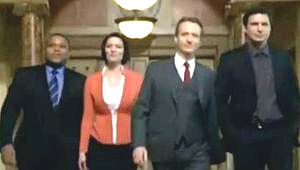
Anthony Anderson, Alana de la Garza, Linus Roache and Jeremy Sisto (Also the cast at the end of Season 18, when Anderson replaced Jesse Martin).
